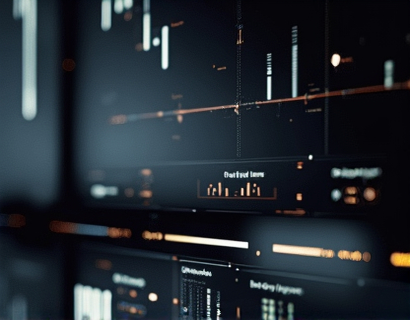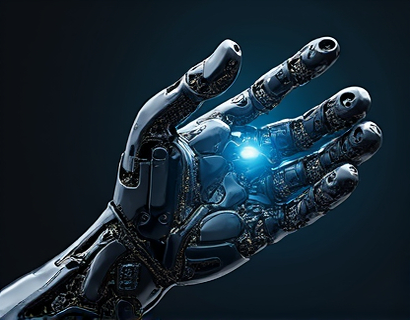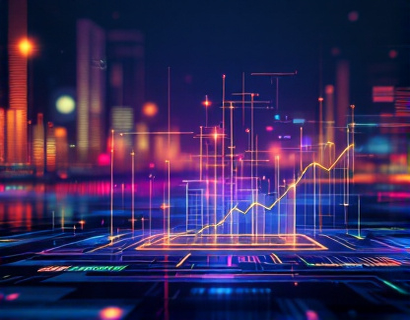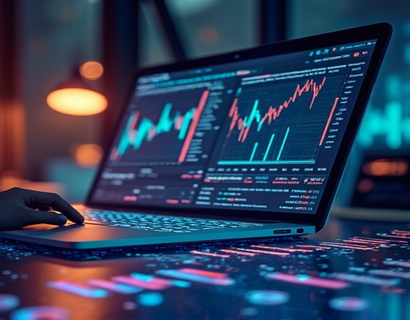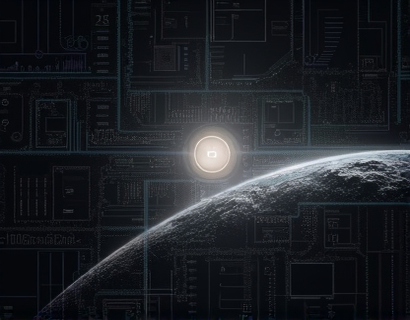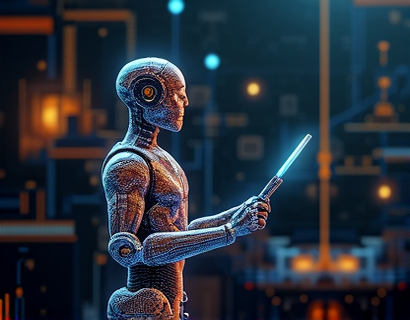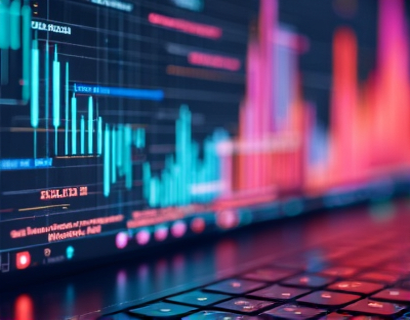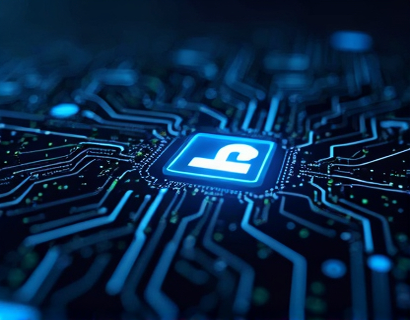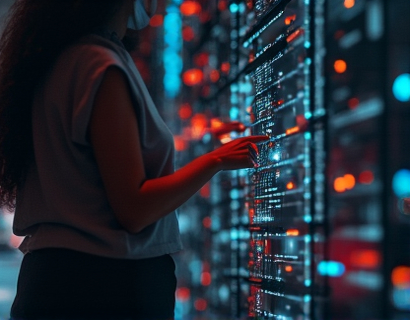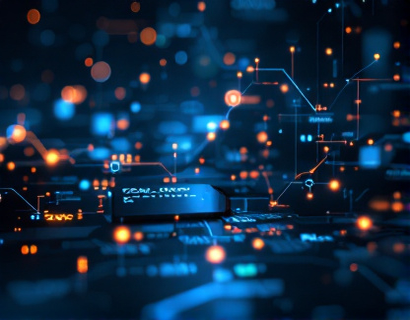Revolutionizing Digital Transformation: The Synergy of Crypto and AI
The intersection of blockchain technology and artificial intelligence (AI) is ushering in a new era of digital transformation. This synergy is not just a technological advancement but a paradigm shift that is redefining how we interact with digital systems and platforms. For tech innovators and early adopters, understanding this convergence is crucial to enhancing online presence and driving substantial growth in the rapidly evolving tech landscape.
The integration of blockchain and AI offers a unique opportunity to create more secure, efficient, and intelligent digital ecosystems. Blockchain provides a decentralized and immutable ledger, ensuring transparency and security, while AI brings in the capability to analyze vast amounts of data, learn from patterns, and make informed decisions. Together, these technologies can revolutionize various sectors, from finance and healthcare to supply chain and beyond.
Enhancing Security with Blockchain
One of the most significant advantages of blockchain technology is its ability to enhance security in digital transactions. The decentralized nature of blockchain means that there is no single point of failure, making it extremely difficult for hackers to manipulate the system. Each transaction is verified by multiple nodes in the network, ensuring that once a transaction is recorded, it cannot be altered without consensus from the majority of the network.
In the context of digital transformation, this level of security is invaluable. For businesses looking to adopt blockchain, the assurance of secure transactions can open up new possibilities for cross-border payments, supply chain management, and identity verification. AI can further bolster these security measures by detecting anomalies and potential threats in real-time, providing an additional layer of protection against cyber threats.
AI-Driven Efficiency and Automation
AI's capability to process and analyze large datasets at unprecedented speeds can significantly enhance operational efficiency. In a digital ecosystem, AI can automate routine tasks, reduce human error, and optimize resource allocation. For instance, in finance, AI algorithms can detect fraudulent activities, predict market trends, and manage risk more effectively than traditional methods.
Moreover, AI can facilitate smart contract execution on blockchain platforms, ensuring that agreements are automatically enforced when predefined conditions are met. This not only speeds up processes but also reduces the need for intermediaries, lowering costs and increasing transparency. The combination of AI and blockchain thus creates a powerful tool for automating and streamlining complex business processes.
Personalized User Experiences
Another transformative aspect of integrating AI with blockchain is the ability to deliver personalized user experiences. AI can analyze user behavior and preferences to provide tailored recommendations and services. When combined with the secure and transparent data management capabilities of blockchain, this can lead to highly customized and trustworthy interactions.
For example, in the realm of e-commerce, AI can suggest products based on a user's browsing and purchasing history, while blockchain ensures that the user's data is securely stored and managed. This not only enhances the user experience but also builds trust, as users are more likely to engage with platforms that prioritize their data security and privacy.
Supply Chain Optimization
Supply chain management is another area where the integration of blockchain and AI can drive significant improvements. Blockchain provides a transparent and immutable record of every step in the supply chain, from production to delivery. This transparency helps in tracking products, ensuring authenticity, and reducing fraud.
AI can further optimize supply chain operations by predicting demand, managing inventory, and identifying bottlenecks. Machine learning algorithms can analyze historical data to forecast future trends, enabling businesses to make data-driven decisions. For instance, AI can optimize routing and logistics, reducing transportation costs and delivery times. When combined with blockchain, these optimizations are recorded in a tamper-proof manner, ensuring accountability and efficiency throughout the supply chain.
Healthcare Innovations
In the healthcare sector, the synergy of blockchain and AI has the potential to revolutionize patient care and data management. Blockchain can securely store and manage patient records, ensuring that sensitive information is protected and easily accessible to authorized personnel. AI can analyze these records to provide insights into patient health, predict disease outbreaks, and personalize treatment plans.
For example, AI-powered diagnostic tools can analyze medical images and patient data to identify potential health issues early and accurately. Blockchain ensures that this data is securely shared between healthcare providers, enhancing collaboration and improving patient outcomes. The combination of these technologies can lead to more efficient, accurate, and patient-centered healthcare services.
Financial Inclusion and Cryptocurrencies
The financial sector stands to benefit greatly from the integration of blockchain and AI. Blockchain-based cryptocurrencies can provide financial services to underserved populations, promoting financial inclusion. AI can enhance these services by analyzing financial data to assess creditworthiness, detect fraud, and optimize investment strategies.
For instance, AI-driven credit scoring models can evaluate a wider range of data points, including social media activity and transaction history, to provide a more accurate assessment of an individual's credit risk. This can help financial institutions extend credit to those who might otherwise be excluded from traditional banking systems. Blockchain ensures that these transactions are secure and transparent, building trust in the financial ecosystem.
Challenges and Considerations
While the potential benefits of integrating blockchain and AI are substantial, there are also challenges and considerations that must be addressed. One of the primary concerns is the regulatory landscape. As these technologies are still relatively new, regulations are evolving and can vary significantly across different regions. Businesses must stay informed about local and international regulations to ensure compliance.
Another challenge is the technical complexity involved in implementing these solutions. Integrating blockchain and AI requires specialized knowledge and expertise. Organizations may need to invest in training their staff or partner with technology providers to navigate this complex landscape effectively.
Scalability is also a critical factor. While blockchain and AI can handle significant amounts of data, there are limitations to their current capabilities. Ensuring that these systems can scale to meet the demands of large-scale applications is essential for their widespread adoption.
Future Outlook
Looking ahead, the integration of blockchain and AI is poised to drive further innovation and transformation. As technology continues to advance, we can expect to see more sophisticated applications across various industries. The development of more efficient consensus mechanisms, improved AI algorithms, and enhanced interoperability between blockchain platforms will all contribute to a more seamless and powerful digital ecosystem.
For tech innovators and early adopters, embracing this synergy can provide a competitive edge. By leveraging the strengths of both blockchain and AI, businesses can create more secure, efficient, and intelligent solutions that meet the evolving needs of their customers. The future of digital transformation is bright, and those who harness the power of these technologies will be at the forefront of this exciting journey.



